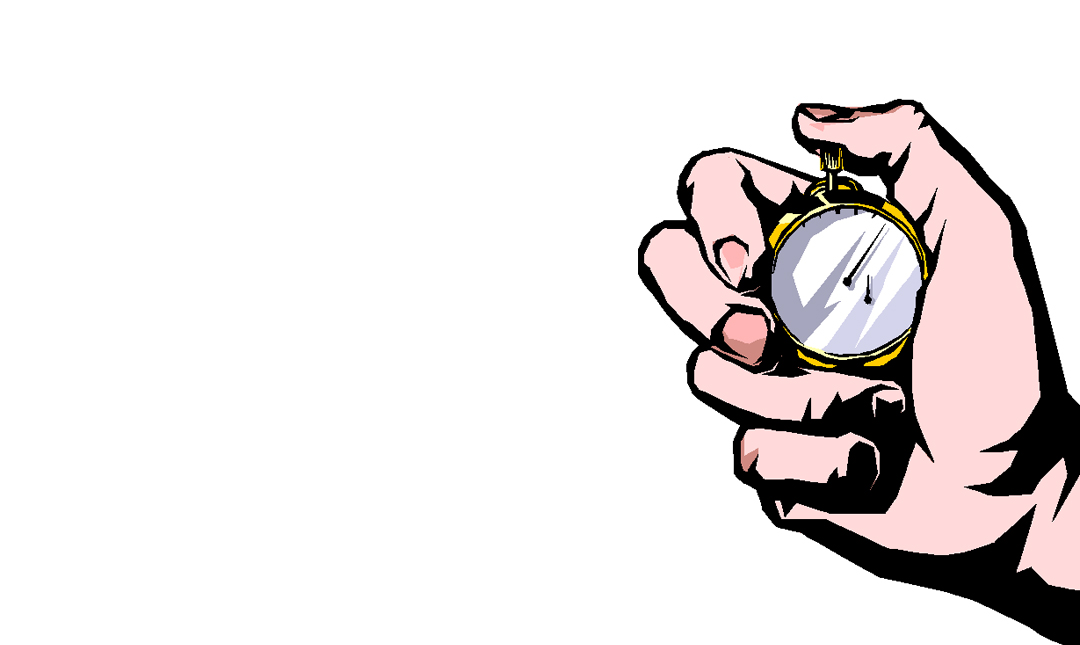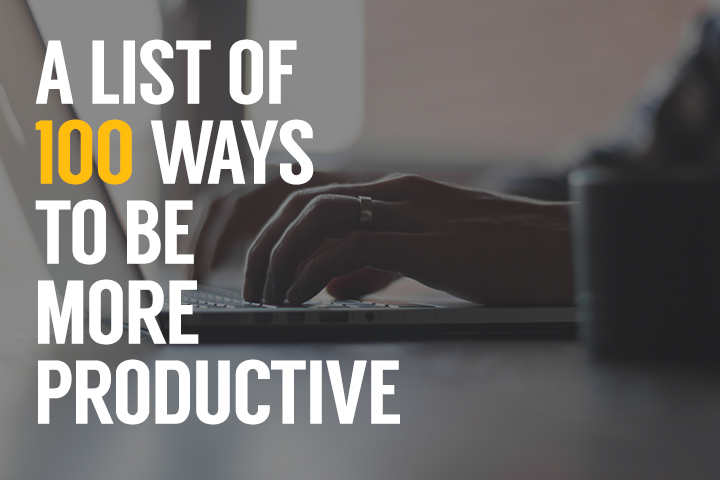Plan community service projects with ease with this list of 100 productivity hacks.
Chris Bailey spent an entire year immersed in everything productivity. According to his blog, A Life of Productivity, Bailey conducted countless productivity experiments on himself, interviewed some of the most productive people in the world, and read a ton of books and academic literature on productivity, all to explore how he could become as productive as possible. 197 articles and over one million hits later, he shared a master list of all that he learned during his year-long experiment.
So whether you are planning a community service project or just want to be more productive, this is a great list to check out. You can view the entire list here or — save yourself some time — and browse our seven favorite insights below:
1. Keep all of your emails five sentences or less, and make a note of it in your signature. This. Is. GENIOUS. However, tread carefully. Brevity can sometimes be interpreted as disinterested, unprofessional or just plain rude. Including a line about brevity in your email signature is a must and consider the context and recipient before you send. A non-profit partner who sends a three paragraph summary of a program may not appreciate a five-sentence-or-less response. Your coworker asking for your feedback, however, may love it. Use your best judgment.

2. Determine your highest-leverage activities. Make a list of all of the activities you’re responsible for in your work, then ask: if you could only do three of those activities all day long, which ones would you pick? Bailey suggests investing 80–90% of your time into these three activities. In the world of sports, however, that’s not always feasible. Do your best to allocate your time to your “highest-leverage activities” and use them as a guide when you are going to plan community service projects for your organization.
3. Live by the two-minute rule. The two-minute rule (from David Allen’s Getting Things Done system) says that when a task will take you less than two minutes, just do it — don’t add it to your to-do list or capture it for later.

4. Schedule your free time. This is so important, especially when we get so little. It’s completely understandable to want to spend your off day catching up on sleep or curled on the couch in the fetal position mindlessly watching Hulu. Yes, we’ve done it too. But TV binging or an extended snooze is not enough to refresh your spirit and give you the energy boost you need to get you through until the next day off. Schedule your off time to include activities you enjoy, like meeting a friend for coffee, reading a book, taking a hike or making a new recipe. It’s been shown to make you happier and more motivated.
5. Every day, recall three things you’re grateful for. This trains your brain to “retain a pattern of scanning the world not for the negative, but for the positive first,” making you more energetic, happier, and more productive.
6. Every day, journal one great experience you had. “Journaling one positive experience you’ve had over the past 24 hours allows your brain to relive it,” which energizes you and makes you more energetic and happy. It’s also a great keepsake to have and reflect on.

7. See your life as a series of “hotspots.” Every day you invest your time, energy, and attention into focus areas, what Bailey calls “hotspots.” The seven he lists are mind, body, emotions, career, finances, relationships, and fun. Determine your own “hotspots” and make sure you don’t overinvest in some areas and underinvest in others.
Hopefully this list will let you plan community service projects with more confidence and of course, more productivity.
Photo: Unsplash
There are always ways to improve! Check out this list of 100. #helperhelper #productivity https://t.co/JBsi1JOCHu pic.twitter.com/dyvn886RVA
— Helper Helper (@HelperHelperApp) October 12, 2015

